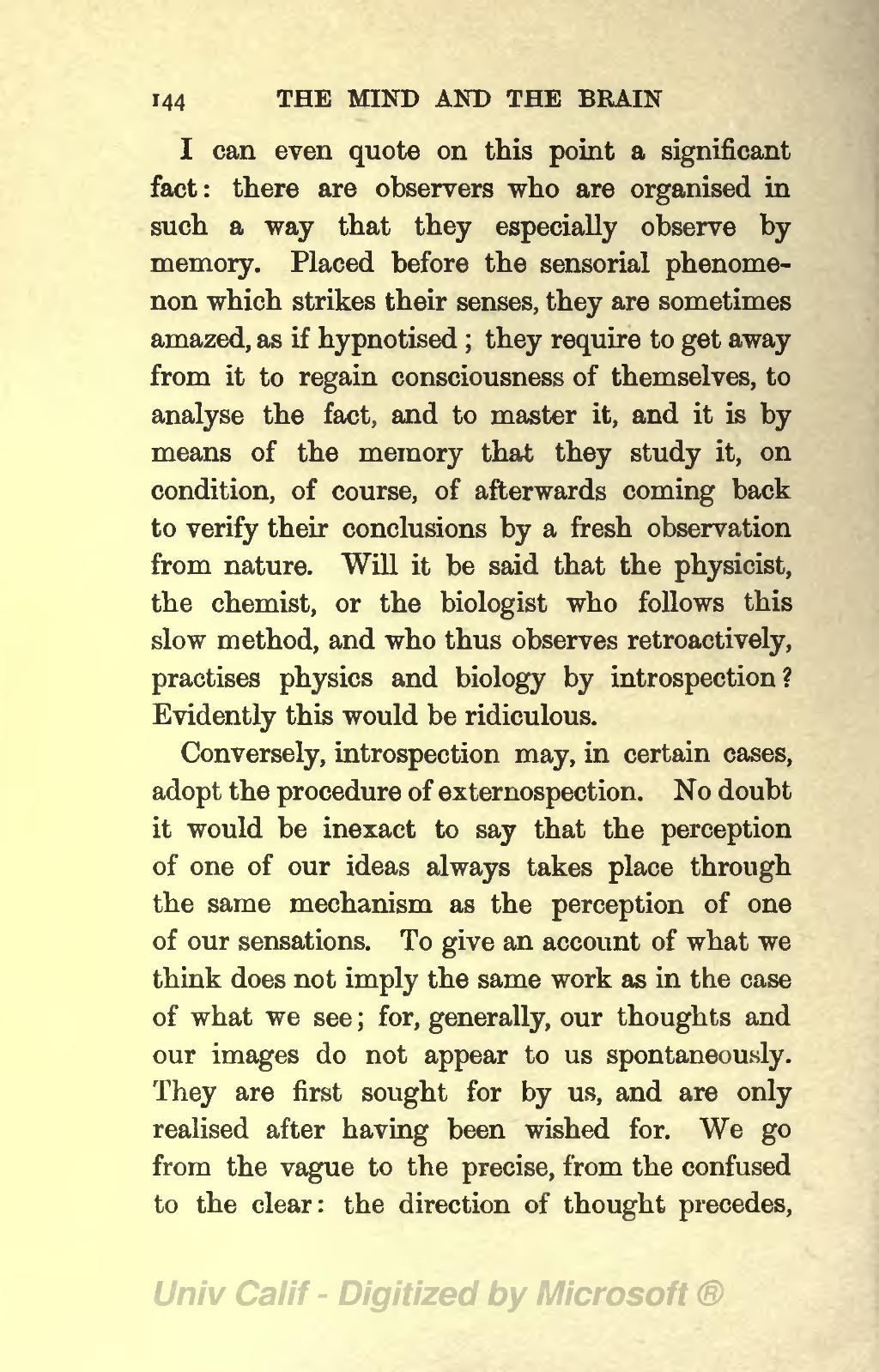I can even quote on this point a significant fact: there are observers who are organised in such a way that they especially observe by memory. Placed before the sensorial phenomenon which strikes their senses, they are sometimes amazed, as if hypnotised; they require to get away from it to regain consciousness of themselves, to analyse the fact, and to master it, and it is by means of the memory that they study it, on condition, of course, of afterwards coming back to verify their conclusions by a fresh observation from nature. Will it be said that the physicist, the chemist, or the biologist who follows this slow method, and who thus observes retroactively, practises physics and biology by introspection? Evidently this would be ridiculous.
Conversely, introspection may, in certain cases, adopt the procedure of externospection. No doubt it would be inexact to say that the perception of one of our ideas always takes place through the same mechanism as the perception of one of our sensations. To give an account of what we think does not imply the same work as in the case of what we see; for, generally, our thoughts and our images do not appear to us spontaneously. They are first sought for by us, and are only realised after having been wished for. We go from the vague to the precise, from the confused to the clear: the direction of thought precedes,
